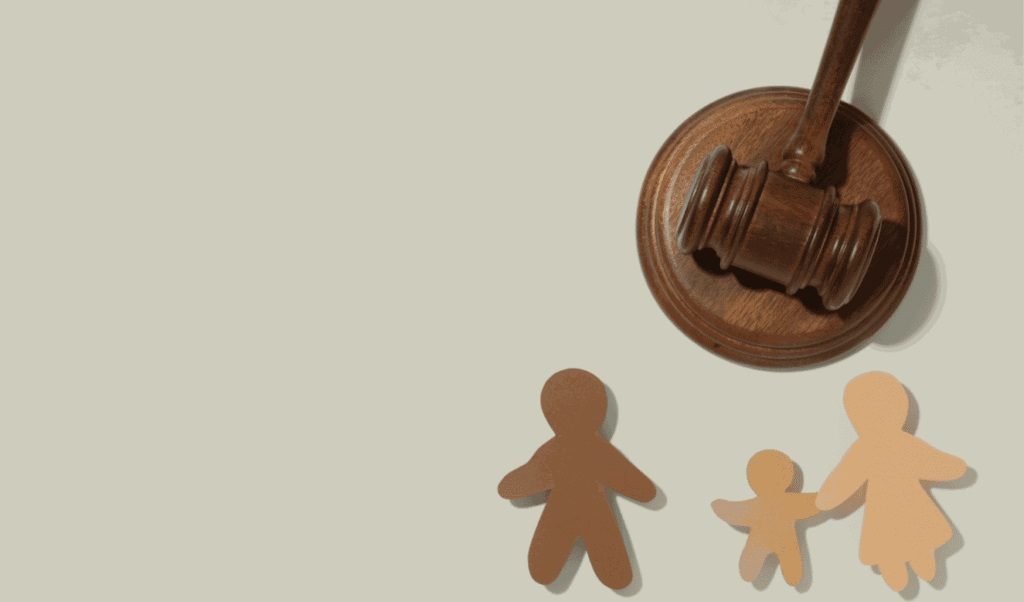When parents divorce or separate, a child custody arrangement must be made for any minor children involved. The most common options are sole custody and joint custody. Sole custody concentrates all rights and responsibilities with one parent, while joint custody divides decision-making and/or physical care between both parents.
Meaning of Sole Custody
Sole custody means that only one parent has the legal right to make significant decisions regarding the child’s welfare and upbringing. This includes decisions about education, medical care, religious upbringing, and other important matters. Sole custody also typically means the child lives primarily or full-time with that parent.
There are two types of sole custody:
- Sole physical custody – The child lives with one parent most or all of the time. The custodial parent makes day-to-day decisions for the child when they are together.
- Sole legal custody – One parent can make major decisions about the child’s welfare, medical care, education, etc. The parents may share physical custody.
Parents can also be granted sole physical and legal custody, with one parent authorized to make all major decisions and the child residing full-time with that parent. This is often simply referred to as sole custody.
Sole custody concentrates all rights and responsibilities for the child’s care and upbringing with one parent. The other parent may retain visitation rights but has limited say in the child’s life decisions.
How Sole Custody Differs from Joint Custody
Joint custody shares rights and duties between both parents.
There are two types:
- Joint legal custody – Both parents have an equal voice in major decisions about the child’s welfare, medical care, education, etc.
- Joint physical custody – Each parent has significant periods residing with and caring for the child. Physical custody may be 50/50 or split according to another percentage.
In a joint legal custody arrangement, parents must communicate about important choices involving the child’s life. This cooperative decision-making is not required with sole custody.
Joint physical custody means the child lives with each parent for a substantial time. With sole physical custody, the child resides primarily or solely with one parent. Sole custody concentrates caregiving and decision-making with one parent, while joint custody requires cooperation and shared responsibility.
Implications of Sole Custody for Parents
There are several key implications when a parent is granted sole custody. The custodial parent has the right to make major decisions about the child’s life without input from the other parent. This includes choices about education, health, religious upbringing, and more.
The parent with sole physical custody determines the child’s residence and schedule. The child lives with this parent full-time or most of the time. The non-custodial parent typically receives scheduled visitation rights. Visitation schedules can range from very limited to extensive, depending on the situation.
Joint decision-making between parents is not required. The custodial parent may consult with the other parent but is not obligated to. Child support is typically paid to the custodial parent by the non-custodian. The non-custodial parent usually has to pay child support determined by state guidelines.
Sole custody arrangements can only be modified by court order. It requires proving a significant change in circumstances affecting the child’s well-being. Sole custody concentrates parental power and responsibilities with one parent. The custodial parent makes the decisions and primarily cares for the child.
When is Sole Custody Awarded?
There are several potential reasons why a court might award sole custody to one parent rather than joint custody:
- Evidence that joint custody would be unworkable or detrimental for the child. For example, parents cannot communicate/cooperate or live too far apart.
- Concerns about safety, neglect, or abuse. If one parent is determined to be incapable of caring for the child.
- Agreement between the parents that sole custody by one parent is best.
- Result of a contested custody battle where the court decides one parent should have sole custody.
- One parent has been the primary caregiver and/or sole decision-maker during the marriage.
- One parent initially has sole custody, but the court modifies it based on changed circumstances.
The court examines the child’s best interest when awarding sole custody. Joint custody is often preferred by courts for its cooperation and shared parenting. But, sole custody may be awarded when extenuating circumstances make joint custody problematic or unfeasible.
Modifying a Sole Custody Arrangement
Sole custody orders can only be modified by petitioning the court for a change.
It requires proving a significant change in circumstances affecting the child’s well-being and best interests and the proposed change is in the child’s best interests.
Possible changes include:
- Switching from sole custody to joint legal and/or physical custody. If parents can now cooperate effectively.
- Changing which parent has sole custody. If the custodial parent is unfit or the child’s needs are better met with the other parent.
- Adjustments to the visitation schedule. The non-custodial parent may gain more parenting time if it is beneficial for the child.
- Changing where the child resides. If relocating would improve the child’s life.
- Updating legal or physical custody to meet the child’s evolving needs as they grow older.
- Altering child support payments if parenting time and expenses change substantially.
Modifying sole custody orders occurs less frequently than joint custody changes. But, major changes in family circumstances or the child’s needs can prompt re-evaluation of the arrangement.
Consulting a Family Law Attorney
Sole custody grants critical rights and responsibilities for a child’s caregiving and upbringing to one parent. While viewed as necessary in high-conflict separations, the courts still aim to protect the child’s relationship with the non-custodial parent.
With parenting cooperation, sole custody can shift to joint custody later on through the family court if deemed in the child’s best interest.
Discuss your situation with a Tennessee family law attorney to understand your options. The attorneys at the Law Office of Sam Byrdcan guide you through custody disputes to protect your parental rights.




